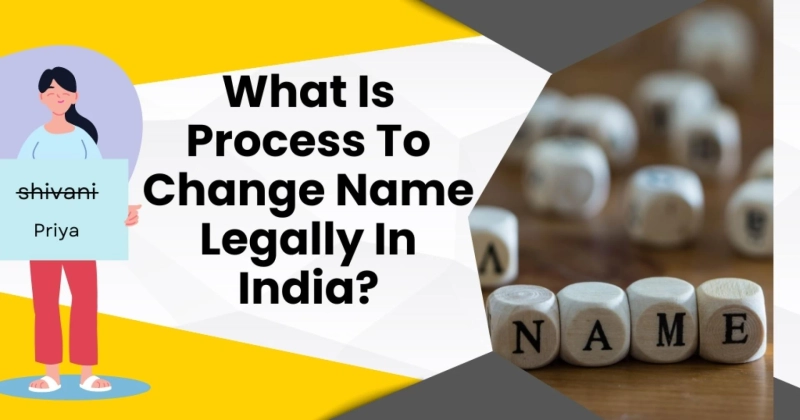Changing one's name can be a significant decision, and the process can vary depending on the country or jurisdiction. In India, the process for legally changing one's name is governed by the Indian Registration Act of 1908 and the Special Marriage Act of 1954. In this article, we will outline the steps and requirements for legally name change in India.
Eligibility Criteria
In order to change one's name legally in India, an individual must meet certain criteria. These include:
The individual must be a citizen of IndiaThe individual must be at least 18 years of ageThe individual must not have any pending criminal cases or judgments against themThe individual must not have changed their name in the recent past (usually within the last 3 years)Also Read - There are so many couple who want to leave their partner but don’t have proper legal knowledge so don't worry, here we will suggest our reader to read How to Change Your Name Legally After Marriage in India.
Steps to Change Name Legally
The process for legally changing one's name in India can be broken down into the following steps:
Publish a notice of the intended name change in a local newspaper. This notice should include the individual's current name, the intended new name, and the reason for the change.Obtain a "no objection certificate" (NOC) from the local police. This certificate confirms that the police have no objections to the name change.Obtain an affidavit from a notary public. This affidavit should state the individual's current name, the intended new name, and the reason for the change.Submit the notice, NOC, and affidavit to the Registrar of Births and Deaths in the individual's district. Along with these documents, the individual will also need to provide proof of identity, such as a passport or voter ID card.Once the Registrar has reviewed and approved the application, they will issue a new birth certificate reflecting the individual's new name.Once the individual has the new birth certificate, they can update their name on other government-issued documents, such as their passport and voter ID card.Time Frame and Fees
The time frame for legally name change in India can vary depending on the individual's district and the backlog of applications. However, the process usually takes around 2-3 months. In terms of fees, there may be a small fee for the NOC and affidavit, as well as a fee for publishing the notice in the newspaper. The fee for updating the name on the birth certificate can vary from state to state.
Tips and Considerations
Here are some tips and considerations to keep in mind when legally changing one's name in India:
Make sure to double-check all the documents for errors before submitting themKeep a copy of all the documents submitted for the name changeThe process of changing the name on other government-issued documents such as passport or voter ID card is separate and may require additional time and feesChanging the name in school and college certificates and documents is a separate process and may require additional steps.The process of changing the name in bank accounts, PAN card, and other financial and legal documents are separate process and may require additional steps.It's also important to consider the impact that a name change may have on your personal and professional relationships and networks.Conclusion
Changing one's name legally in India requires meeting certain criteria, obtaining various documents, and submitting them to the Registrar of Births and Deaths. The process can take several months and may require paying fees for some of the documents. It is also important to keep in mind that updating the name on other government-issued documents, school and college certificates, bank accounts and other legal documents are separate process and may require additional steps
Written by Mahender
0


